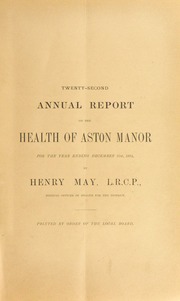MWS
from Bham
With the high mortality rate for children in the past I do wonder how our ancestors dealt with this ever present threat. Was it viewed as big a tragedy as it would be now or was it just accepted as a fact of life? How did parents who lost multiple and sometimes all their children cope? It's hard to imagine. And would they feel bitter to family and neighbours that lost none?
For Birmingham were there specific streets that had a higher mortality rate than others? Did people who had lived in the city all their life lose more children than those who had recently moved here?
From my own ancestors in the late 19thc my mom's great grandparents lost 7 of 8 children before the age of 3, whilst my dad's grandparents lost none of 11 (2 to flu, aged 6 & 9) though they lived fairly near each other in duddeston at the same time.
In Aston in 1885 there were 8404 births registered, 1171 (14%) deaths registered for children aged 0, 335 aged 1 and 114 aged 2. 19.25% in total.
Twenty years later there were 9862 births, 1430 (14.5%) deaths aged 0, 393 aged 1 and 146 aged 2. Just under 20% in total.
For some reason I thought it would have been less.
For Birmingham were there specific streets that had a higher mortality rate than others? Did people who had lived in the city all their life lose more children than those who had recently moved here?
From my own ancestors in the late 19thc my mom's great grandparents lost 7 of 8 children before the age of 3, whilst my dad's grandparents lost none of 11 (2 to flu, aged 6 & 9) though they lived fairly near each other in duddeston at the same time.
In Aston in 1885 there were 8404 births registered, 1171 (14%) deaths registered for children aged 0, 335 aged 1 and 114 aged 2. 19.25% in total.
Twenty years later there were 9862 births, 1430 (14.5%) deaths aged 0, 393 aged 1 and 146 aged 2. Just under 20% in total.
For some reason I thought it would have been less.


